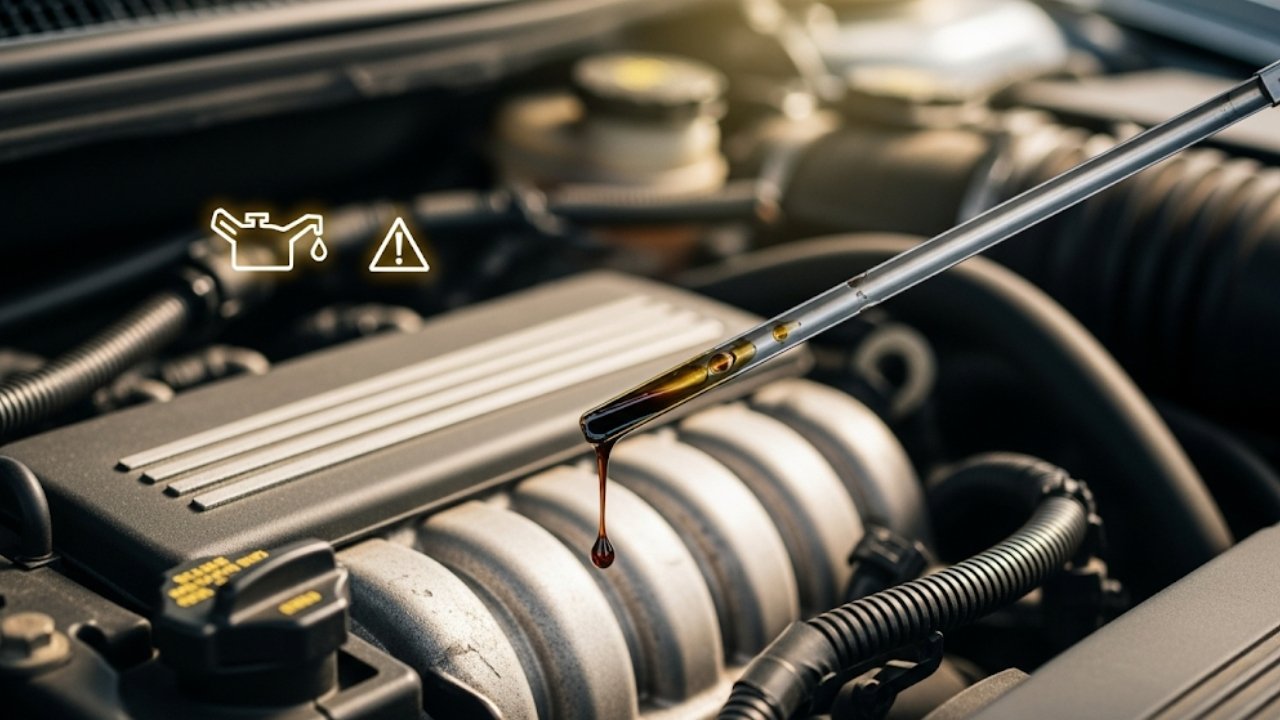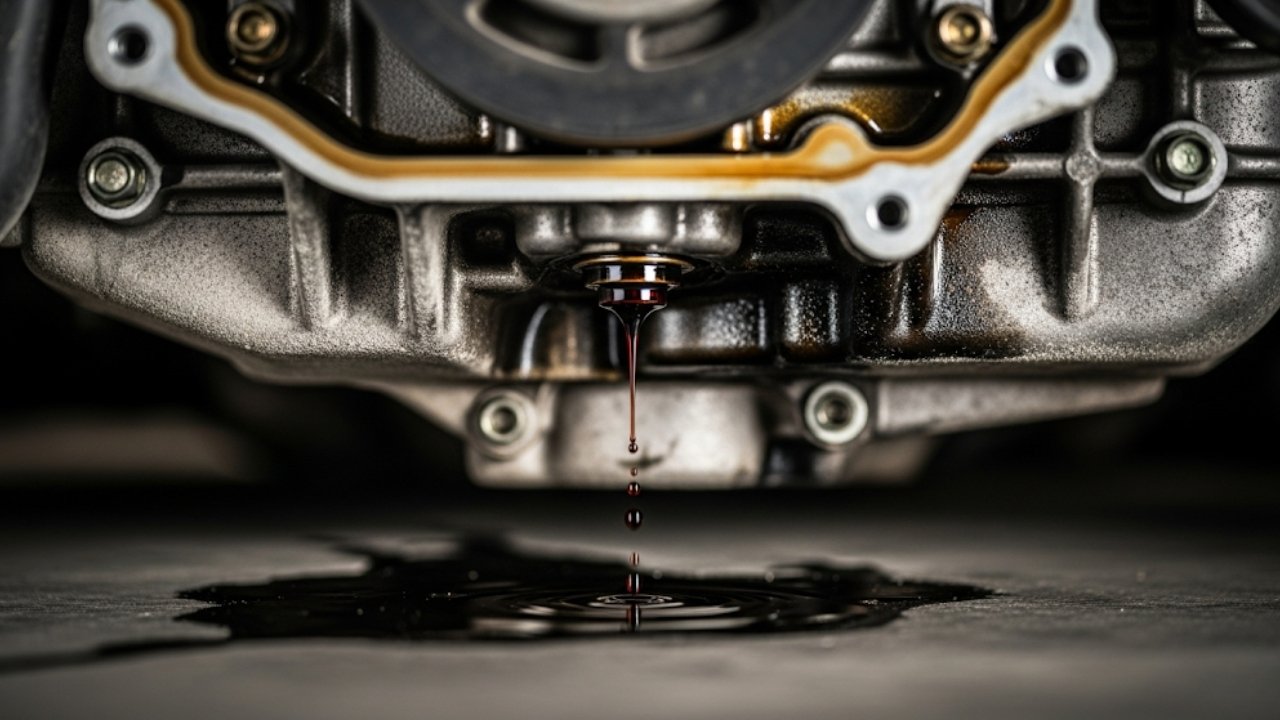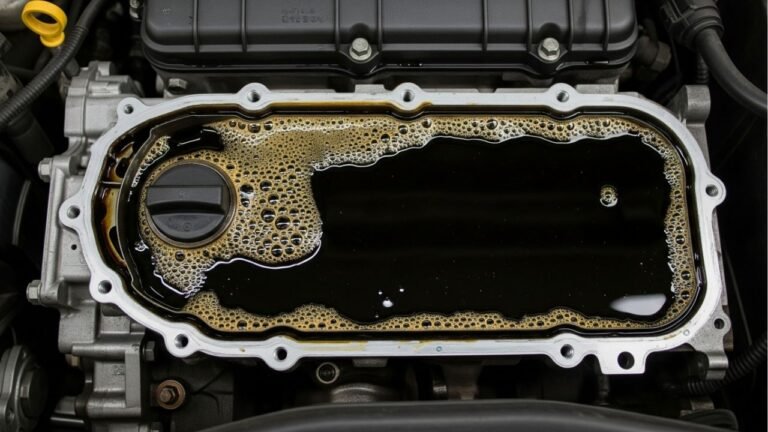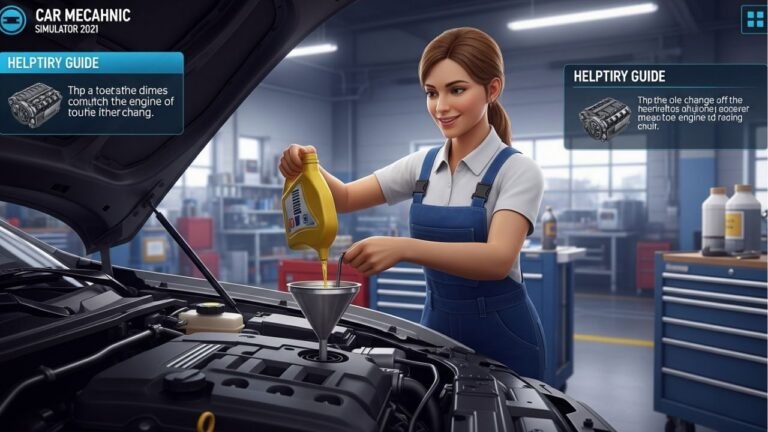Low Oil Car Won’t Start – What’s Really Going On?

Have you ever rushed out the door, jumped into your car, turned the key—only to hear that dreadful silence or a weak sputter? It’s that frustrating moment when your car won’t start, and you’re left wondering, what went wrong this time? One overlooked culprit is often something surprisingly simple but deadly serious: low engine oil.
I’ve been there. A few years ago, I was getting ready for a family trip from Dhaka to Cox’s Bazar. Bags were packed, snacks ready, playlist set. But my car refused to start. I panicked. Battery? Maybe. Starter? Possibly. But after checking the dipstick, I realized I was running dangerously low on oil.
That moment taught me a valuable lesson: low oil car won’t start isn’t just a random coincidence—it’s your engine crying out for help.
This article will guide you through:
-
Why your car won’t start when oil levels are low
-
What damage it can cause
-
How to check and fix it yourself
-
Personal stories and expert advice to help you avoid costly mistakes
Let’s dive into the oily truth.
Why Does Low Oil Prevent Your Car from Starting?

Here’s what happens:
-
Lack of lubrication: Your engine’s metal parts move at thousands of RPM. Without oil, friction increases and parts grind against each other.
-
Sensor shutdown: Most modern cars have oil pressure sensors. If they detect low oil, they may prevent the car from starting to protect the engine.
-
Overheating: Even during startup, parts can heat quickly. Oil absorbs that heat. No oil = instant overheating risks.
-
Crankshaft issues: The crankshaft and pistons need lubrication. Without it, they may seize or resist movement.
I once ignored the oil light in my old Toyota Corolla for a week—rookie mistake. The car eventually stalled mid-traffic, and I ended up replacing the engine. A costly reminder that oil is your engine’s lifeline.
Think of it like your body running without blood. You might get a step or two in, but soon, everything shuts down. Engine oil is that essential.
What Happens Internally When There’s Not Enough Oil?
Let’s take a peek under the hood and break down what goes on.
| Component | Effect of Low Oil |
|---|---|
| Pistons | Overheat, cause scoring on cylinder walls |
| Camshaft | Wears down rapidly or breaks |
| Crankshaft Bearings | Lose lubrication, may seize |
| Oil Pump | Sucks air instead of oil, loses pressure |
| Lifters & Valves | Tap loudly, misfire, or fail to operate properly |
In many cars, if oil pressure drops to zero, the ECU (Engine Control Unit) may prevent ignition. It’s a built-in safety net to save the engine. But for us drivers, it means sitting there with a car that just won’t cooperate.
Signs That Low Oil Might Be the Reason Your Car Won’t Start
You don’t need to be a mechanic to catch these warning signs. Pay attention to what your car is trying to tell you.
Here’s what to look for:
-
Oil warning light: If this stays on or blinks, check your oil immediately.
-
Grinding or knocking sounds: No oil = metal-on-metal = bad news.
-
Slow cranking: Engine turns slowly or not at all when you start.
-
Burning smell: Friction heats parts and may cause burning oil odor.
-
Smoke from exhaust: Especially blue smoke—it’s often oil-related.
Back in college, I borrowed my cousin’s Suzuki Alto. It had this faint knocking sound. I brushed it off and took it for a ride. Halfway down the highway, it died. Turns out, it had barely a drop of oil in it.
That’s when I learned: always check the dipstick before a long drive. It takes 30 seconds but can save you thousands.
How to Check and Top-Up Your Engine Oil (It’s Easier Than You Think)
If you suspect that low oil might be why your car won’t start, don’t panic. You can easily check it yourself.
Follow these steps:
-
Park the car on level ground and turn it off.
-
Open the hood and find the dipstick (usually with a bright handle).
-
Pull it out, wipe it clean, reinsert it, and then pull again.
-
Look at the oil level markers. If it’s below the minimum, that’s your issue.
-
Add the recommended engine oil type slowly—check the manual.
-
Wait a minute, check the dipstick again.
-
If oil is at a safe level, try restarting the engine.
Quick Tips:
-
Always use the correct oil viscosity (like 5W-30 or 10W-40).
-
Avoid overfilling—too much oil is also harmful.
-
If the oil is thick, black, or smells burnt, change it.
I keep a small bottle of oil in my trunk at all times now—just in case. Once, during a road trip near Sylhet, I noticed my oil light flicker. Topped up, crisis averted. Small things make a big difference.
Can Low Oil Damage the Engine Even If It Starts?
Yes—absolutely. Even if your car does start, running it with low oil is like running a marathon without water. It might survive, but damage builds up quietly.
Here’s what might happen:
-
Worn bearings: Over time, this leads to engine knocking.
-
Warped parts: Without lubrication, heat can deform vital components.
-
Sludge build-up: With low oil, dirt concentrates and turns into sludge.
-
Total engine failure: Worst case, your engine locks up—beyond repair.
In mechanical terms, the lack of oil compromises the lubrication film between parts. Once that’s gone, metal scrapes against metal. You won’t see the damage right away. But over weeks or months, it’ll get worse until one day—boom! No warning.
That’s why ignoring that blinking oil light is one of the most expensive decisions a driver can make.
️ Can a Car With Low Oil Be Jump-Started?
You might be tempted to jump-start your vehicle. But here’s a word of caution: if the root issue is low oil, jump-starting won’t fix it.
In fact, it might make things worse.
Here’s why:
-
Jump-starting only helps electrical issues—like dead batteries.
-
If your engine isn’t turning because of oil starvation, forcing it can damage internal parts.
-
Jumping a dry engine could cause crankshaft failure or piston scoring.
I once saw a neighbor jump-start his low-oil car during a cold morning in Chattogram. The car roared to life—for about 10 seconds. Then came a bang. Crankshaft cracked. That car hasn’t moved since.
So before you reach for the cables, check that oil level first. It could save your engine.
Preventing the “Low Oil Car Won’t Start” Nightmare
Now that we know the damage low oil can cause, let’s talk prevention. Trust me, once you experience an engine that won’t start due to low oil, you’ll never want to go through it again.
Here’s how you can stay ahead:
-
Check your oil monthly — Especially before long trips.
-
Listen to your car — Ticking, knocking, or unusual engine noises are red flags.
-
Change oil regularly — Follow your car manual’s schedule (every 5,000 to 10,000 km).
-
Use high-quality oil — Stick to the type your car was designed for.
-
Watch for leaks — Check for dark spots under your car, especially in the morning.
One of my uncles, a truck driver in Khulna, made it a habit to check his oil before every trip. His truck, old as it was, ran smoothly for over 15 years. Maintenance doesn’t have to be complex. It just has to be consistent.
When to Call a Mechanic Immediately
Sometimes, topping up oil won’t fix the issue. If your car still won’t start, it’s time to bring in the pros. You might be dealing with more than just low oil. Here are scenarios where expert help is your best option:
Red flags:
-
You’ve topped up oil but engine still won’t crank
-
Oil light stays on even after refill
-
Burnt oil smell continues
-
You hear loud clanking or grinding
-
You notice white or blue smoke from the exhaust
Mechanics have tools to measure oil pressure, test sensors, and inspect internal damage. If you continue forcing a start, you could do irreversible harm. It’s like trying to run with a broken ankle — you’ll only make it worse.
During one monsoon season, my neighbor in Sylhet faced this exact problem. His oil was fine, but his oil pump had failed. The mechanic saved his engine just in time by catching it early.
Cultural Nuance: Why This Happens More Often in South Asia
In places like Bangladesh, India, and Pakistan, car maintenance sometimes takes a back seat to daily priorities. Let’s be honest—we’re more likely to refill gas than check the oil.
Here’s why it’s common:
-
Hot climate = oil breaks down faster
-
Heavy traffic = engines run longer and harder
-
Dusty roads = contaminants enter engine more often
-
Older vehicles = burn oil quicker
-
Lack of awareness = many drivers don’t check their oil until it’s too late
We treat cars like loyal servants, not delicate machines. But like any relationship, if you ignore it too long, it will break down. Literally.
So whether you’re navigating the tight streets of Old Dhaka or cruising the highways of Comilla, make engine oil health a part of your driving ritual.
Common Myths About Oil and Engine Starting
Let’s bust some myths that float around tea stalls and YouTube comment sections.
Myth 1: “If my car starts, my oil is fine.”
Truth: Your engine might still start with low oil, but damage is happening underneath.
Myth 2: “Oil doesn’t affect ignition.”
Truth: Indirectly, it does. Low oil triggers sensors that may prevent ignition to save the engine.
Myth 3: “Synthetic oil lasts forever.”
Truth: It lasts longer, yes. But not forever. Even synthetic oil needs regular checking and changing.
Myth 4: “I don’t need to check oil if there’s no leak.”
Truth: Engines naturally burn small amounts of oil. No leak doesn’t mean no loss.
Don’t fall for old advice passed down without question. Cars have evolved. So should our understanding.
❓ FAQs: Low Oil and Starting Problems
Let’s address the most frequently asked questions about the issue.
1. Can low oil prevent a car from starting?
Yes. In modern cars, sensors may prevent starting to avoid engine damage due to low oil pressure.
2. Will adding oil help my car start?
If low oil was the only problem, adding oil might solve it. But if damage has occurred, it may need repairs.
3. How do I know if my oil is low?
Use the dipstick. If the oil is below the “minimum” line, it’s too low. Also, watch for the oil warning light.
4. Is it safe to drive after topping up oil?
Yes, if the engine runs normally afterward. But if odd noises or warning lights persist, get it checked.
5. What kind of oil should I use?
Use the type recommended in your vehicle’s manual — for example, 5W-30 or 10W-40.
6. How often should I check my oil?
Once a month at minimum. More often in hot climates or with older engines.
7. What if I added too much oil?
Too much oil can also damage your engine by foaming or increasing pressure. Drain the excess if needed.
8. Can I start my car with no oil just for a few seconds?
Never. Even a few seconds without oil can cause severe internal damage.
Final Thoughts: Don’t Let Oil Be the Reason You Miss Life
At the end of the day, a low oil car won’t start isn’t just a mechanical problem—it’s a metaphor for neglect. We rush through life, ignoring the small warnings until things break. But just like with people, a little attention goes a long way.
I missed an important family function once because my car wouldn’t start due to low oil. Since then, I’ve treated my vehicle with the same care I give to my own health. And it’s paid off — fewer problems, smoother rides, and peace of mind.
So next time your car won’t start, don’t jump to conclusions. Pop the hood. Check that dipstick. Your answer might be just a few drops away.






